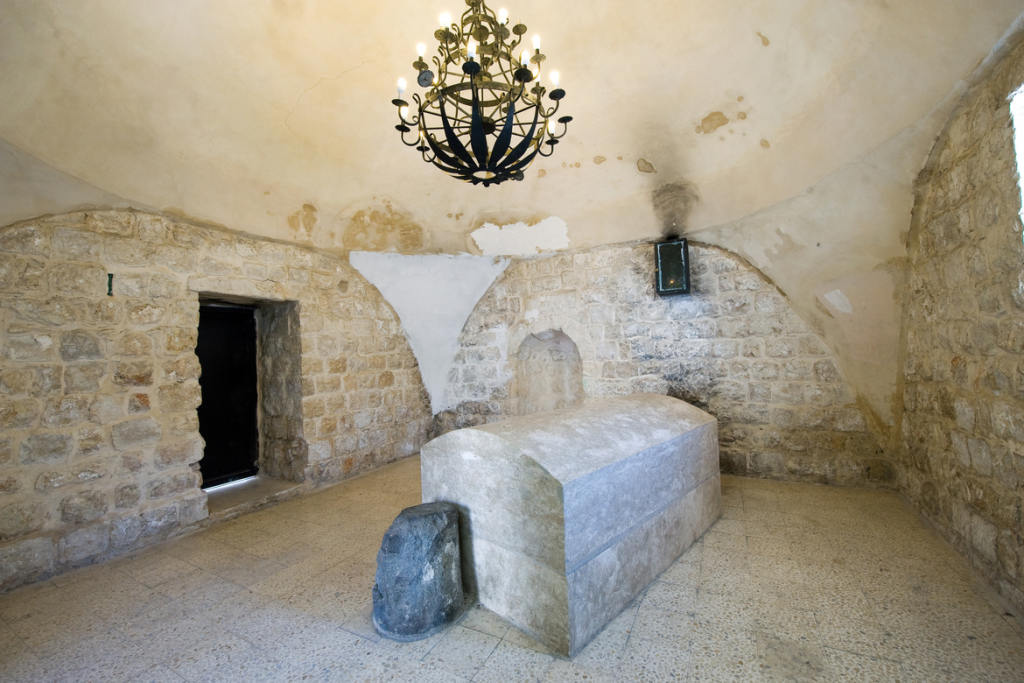Tammuz memory

My birthday falls out on Rosh Chodesh Tammuz. It’s also the birthday and yahrtzeit of Yosef Hatzaddik. We have another thing in common as well. We’re both the son of Rachel.
This year, I decided to visit the tzaddik’s gravesite on his yom hillula. It was a powerful experience that I’ll always remember.
Rebbe Nachman says (Torah 217) that Tammuz is the first letters of the verse (Malachi 3:22) זִכְרוּ תּוֹרַת מֹשֶׁה (remember the Torah of Moshe), but the ו is missing. This is because on Tammuz, Moshe broke the Tablets, which the Talmud says (Eruvin 54) allowed the Torah to be forgotten. The dimensions of the Tablets, says the Talmud (Baba Basra 14), were 6×6. This is represented by the missing ו, which represents 6. On Tammuz we need to draw down our memory and strengthen it in the world.
We know that Rosh Chodesh has the energy of the entire month packed into one day. The fact that Yosef died on Rosh Chodesh Tammuz must mean that he is deeply connected to this idea of זכרון, memory. First of all, with the first mention of Yosef in the Torah, before his birth, the Torah says: “וַיִּזְכֹּר אֱלֹהִים אֶת רָחֵל” (HaShem remembered Rachel [who was barren]). Yosef remembers his father, and sees his image, at the time of his biggest trial, and when he’s stuck in jail he asks the שַׂר הַמַּשְׁקִים to remember him when he’s freed from prison “וְהִזְכַּרְתַּנִי אֶל פַּרְעֹה“. Yosef remembers that he’s a Jew the whole time that he’s in Egypt. Then later, when he sees his brothers, “וַיִּזְכֹּר יוֹסֵף אֵת הַחֲלֹמוֹת” (Yosef remembered the dreams). When he sends his brothers back to Jacob, he remembers the last passage of Torah that he learned with his father and reminds him of it by sending them wagons. Finally, when Yosef is on his deathbed, he reminds the brothers that פָּקֹד יִפְקֹד אֶתְכֶם, “Hashem will remember you [and redeem us from the exile]”.
What’s the connection between Yosef and remembering? In Kabbalah, the final two features of the Divine Image are יְסוֹד and מַּלְכוּת. Yosef embodies the attribute of יְסוֹד, which is a male feature, and David embodies מַּלְכוּת, which is a feminine feature. The completion of יְסוֹד is guarding the covenant, which shows loyalty; remembering the original agreement so deeply that it can’t be broken.The Hebrew word for male is זָכָר, which means memory. The physical contribution of the male in a marital union is a flash of memory. He gives over the entire chain of history. The tribe goes by the father and the inheritance too. It’s interesting that יְסוֹד is the 6th one of the emotional middot. Maybe this is why the ו is missing in the word Tammuz. There is also six events that the Torah tells us to remember everyday, the six remembrances. Because there is a need to remember in this month. There is a unique need for the personality trait of Yosef, so we don’t forget. We remember the things that are most important to us. The prophet tells us זִכְרוּ תּוֹרַת מֹשֶׁה. Remember who you are, remember where you came from, remember what you’re made of and what you’re capable of. Galus makes us forget. But we need to make our memories present in our lives. That’s Torah. It’s old as ever but constantly renewing. It’s a present memory.
published on TikkunHaklali.net.